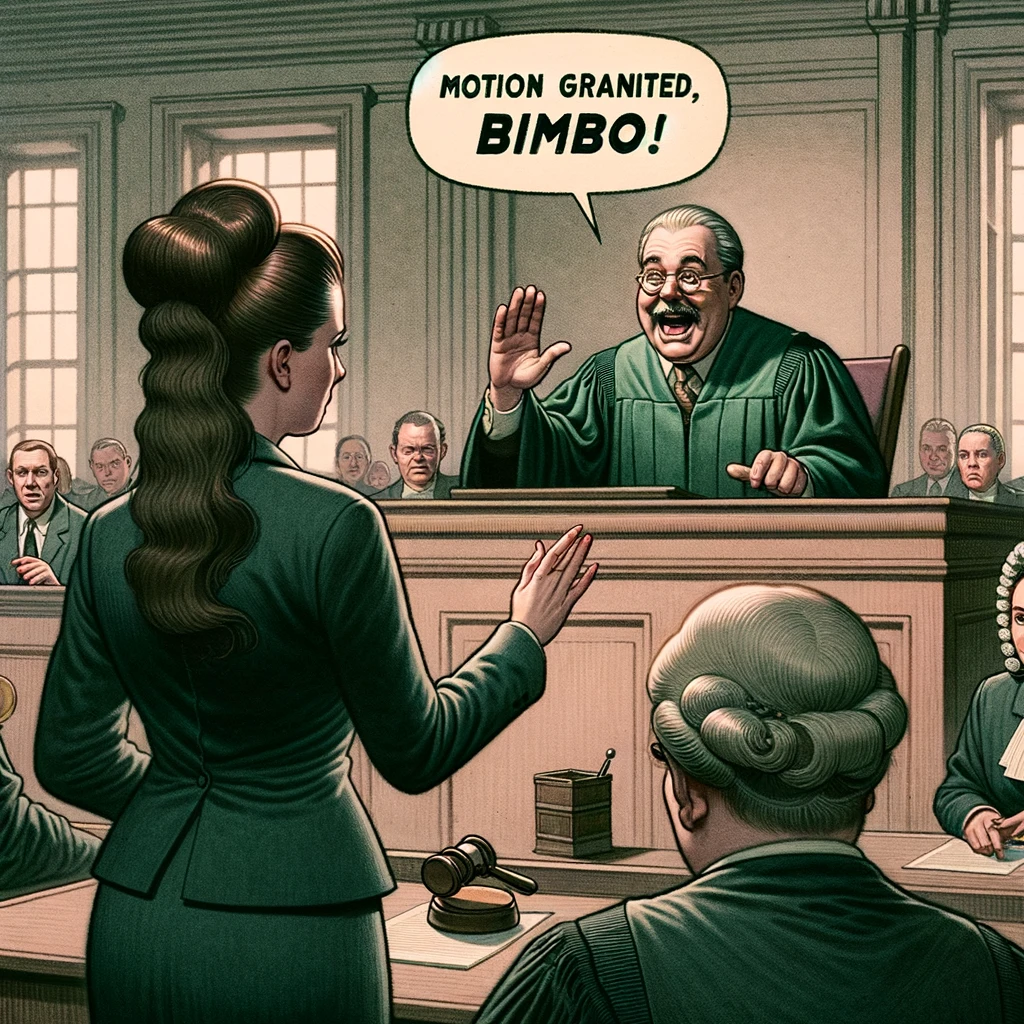
You can’t change your name to something offensive, but the Court of Appeal publishes its opinion in Wood v. S.F. Cnty. Superior Court (D1d2 Mar. 14, 2024 No. A168463) [cert. for pub.] to announce that, as a matter of law, “Bimbo” is not offensive.
The full name the appellant sought was “Candi Bimbo Doll.” This next the opinion does not tell, but Prof. Shaun Martin links a source indicating that appellant is a transsexual adult film performer who, possibly as a symptom of self-acknowledged body dysmorphia, seeks to bring bust size to roughly an order of magnitude of brain size.
The court’s opinion puts a different spin on appellant’s disorder, making the “Bimbo” name change a strike for a fringe TikTok movement, apparently known as “bimbo feminism,” to reclaim the derogatory term. “The trial court,” the Court of Appeal chides, “disregarded all that.”
In the trial court’s defense, it had compared the appellant’s effort to the man who once sought to change his name to “Misteri Nggr” in furtherance of social justice. It was no dice for that (extremely) offensive term, and so the trial court ruled it was no dice for the (albeit rather less) offensive term “Bimbo” here.
The Court of Appeal disagreed. “Bimbo is not a fighting word. It is not vulgar.” And it is not even necessarily offensive.” So the public policy in favor of granting a name change controls.
I can’t say I agree with the court’s decision to lend credibility to a TikTok trend to reclaim the term bimbo for feminism, and then to attribute that ironic motive to a troubled appellant’s sadly earnest name-change request. I agree with Prof. Martin that there was “[n]o reason … for the law to take a definitive side in that debate.” In a published opinion, no less.